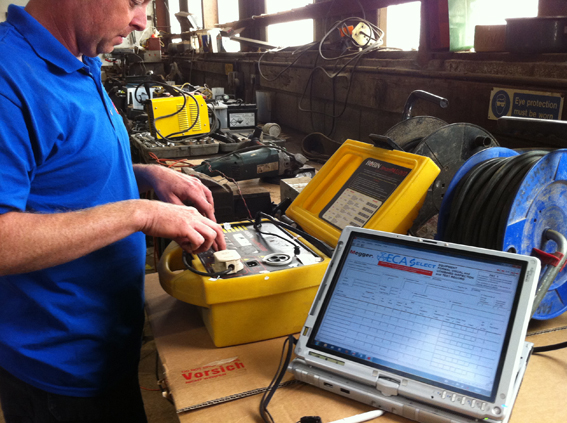PAT Testing
Why PAT Test?
The Responsibility Of All Employers
Portable Appliance Testing (PAT Testing) is the best way of meeting the electrical regulations that exist to protect employees, customers and tenants. Failure to comply with the Electrical Regulations may constitute a criminal offence under the Consumer Protection Act 1987, which carries a maximum penalty on summery conviction of a £5,000 fine and/or 6 months imprisonment.
The Electricity at Work Act Regulations 1989 (Regulation 4(2):- as may be necessary to prevent danger, all systems shall be maintained so as to prevent so far as is reasonably practicable such danger’.
Tests and Inspections should be made at reasonable and regular intervals, as all portable equipment is vulnerable to damage and dangerous to the user, without a regular programme of testing and inspection you have not taken reasonable steps to ensure the safety of the users.
In the Health and Safety at Work Act 1974, all employers have a legal duty to provide safe plant and equipment, and every employer must ensure that equipment must be maintained in an efficient state, in efficient working order and good repair.
Our Services
The regulations outlined above are a selection, which are of equal importance, and are all in place to ensure the safety of everyone who comes into contact with electrical equipment. Other legislative bodies such as:-
The Management of Health & Safety at Work Regulations 1999.
The Provision and Use of Work Equipment Regulations 1998
The Workplace (Health, Safety & Welfare) Regulations 1992
All the above have sections which state that every employer must have a regular programme of PAT testing and inspection and taken reasonable steps to ensure the safety of users.
PAT Testing Services

Portable Appliance Testing (PAT) Scheme
Portable electrical appliances/equipment includes any appliance which connects to single-phase electrical mains supplies by a flexible cable and a 13-amp plug, or which plugs into an adaptor supplied from a 13-amp plug. NB - Extension leads and adaptors are included, and must be inspected and tested.
The Health and Safety Executive states that about one quarter of all reportable electrical accidents at work involves portable electrical equipment, and there are about five fatalities each year involving such equipment. The majority of these accidents are entirely avoidable, and many are due to very obvious faults in equipment.
The purpose of the inspections and tests are to check the electrical safety of all portable electrical equipment regularly so that dangerous faults can be corrected before they cause any injury.